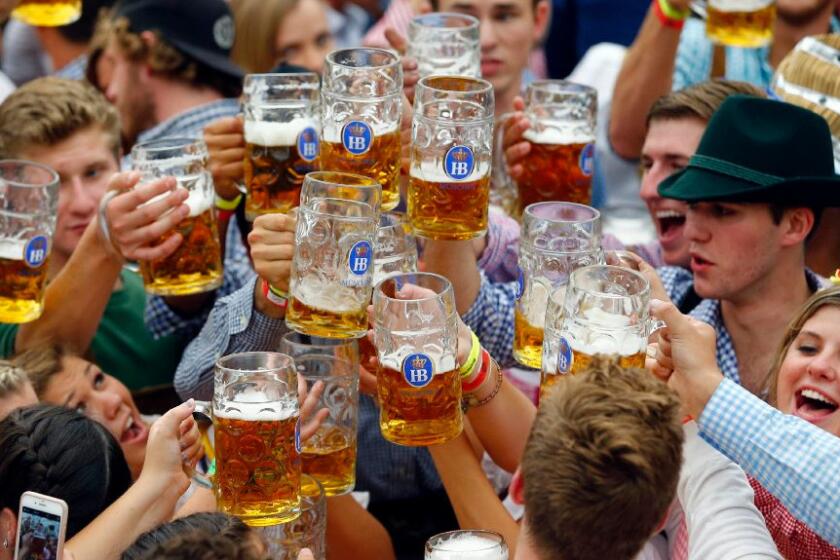Americans are having less sex now than they did 20 years ago

As if we didn’t have enough to worry about, a new study reports that Americans are having less sex now than they did at the turn of the century.
Not only are more adults experiencing dry spells that last a year or more, the adults who are having sex are having it less frequently. These changes have been most notable among men, especially men under the age of 35.
The evidence for this comes from the General Social Survey, which is conducted every other year by the National Opinion Research Center at the University of Chicago. Survey participants were asked how often they’d had sex in the past year, and how many partners they’d had it with.
Responses from a nationally representative sample of nearly 10,000 men and women ages 18 to 44 were included in the study, which was published Friday in the journal JAMA Network Open.
About half of the adults surveyed between 2016 and 2018 said they had sex at least once a week. That includes 46.7% of men and 53.3% of women.
At the other end of the spectrum, 16.5% of men said they had not had sex in the previous 12 months. In the years 2000 to 2002, only 9.5% of the men who took the survey said they’d been celibate for the past year.
Your DNA doesn’t determine when you lose your virginity, but it may play a larger role in the matter than scientists had thought.
The younger men were, the more likely they were to abstain from sex. In 2016-2018, 30.9% of men between the ages of 18 and 24 said they hadn’t been sexually active for at least a year. That compares with 18.9% of men who were surveyed in 2000-2002.
For men between the ages of 25 and 34, the proportion who went at least a year without sex doubled from 7% in 2000-2002 to 14.1% in 2016-2018.
Men who worked part time or not at all, or who were students, were more likely to be sexually inactive than men with full-time jobs. The higher a man’s income, the less likely he was to report a year-long dry spell.
Among men who were sexually active, the activity became less frequent over the study period. Back in 2000-2002, 51.8% of men ages 18 to 24 said they had sex at least once a week, as did 65.3% of men ages 25 to 34 and 61.1% of men ages 35 to 44. But by 2016-2018, those figures had dropped to 37.4%, 50.3% and 49.9%, respectively.
The sex lives of women were more stable, the survey data showed, with the most significant changes occurring among those ages 25 to 34. In this age group, women became more likely to go a year or more without sex — 7% said they did so in 2000-2002, compared with 12.6% in 2016-2018. Meanwhile, the proportion of women who had sex at least once a week fell from 66.4% to 54.2%.
Even married people are having less sex now than they did 20 years ago. Both married men and married women became less likely to have sex at least once a week over the study period; instead, they became more likely to have it one to three times per month.
The study authors noted that the survey questions did not define what it means to “have sex.” The trend toward less sex might have little to do with what goes on in the bedroom; instead, it may reflect a shift toward a more narrow view of what qualifies as “sex,” they wrote.
Millennials may have popularized hookup culture and the notion of “friends with benefits,” but social scientists have made a surprising discovery about the sex lives of these young adults — they’re less promiscuous than their parents’ generation.
There’s no way to know whether survey takers answered the questions about sex honestly, but that was true in all years and probably didn’t skew the results, the study authors added.
The trend in the U.S. appears to fit a pattern observed elsewhere, the researchers wrote. A study of German men documented a recent increase in sexual inactivity, especially among men ages 18 to 30. In that age group, 20.3% said they had been celibate for at least a year in 2016, up from 7.5% in 2005. In Britain, the percentage of adults who went without sex for at least a month increased between 2001 and 2012. And married couples in Finland, Australia and Britain have all acknowledged having sex less often.
The General Social Survey did not ask people why they were having less sex, but the researchers offered some theories.
It’s “plausible” that the “stress and busyness of modern life” leaves less time for sex, they wrote. At the same time, the rise of hook-up culture may be responsible for turning some people away from sex, especially women, they added.
Two of their potential explanations were endorsed in a commentary by Jean Twenge, a professor of psychology at San Diego State University whose research is focused on teens and young adults.
The first is that American adolescents are taking longer to transition into full-fledged adulthood. As teens, they’re less likely to drive, to have a part-time job, and to consume alcohol now compared with teens of previous decades. As young adults, they’re waiting longer to move out of their parents’ homes and to live with a boyfriend, girlfriend or spouse.
Seen in this context, perhaps it’s no wonder that adults under 35 aren’t having as much sex as their counterparts in years gone by. “Adult activities reinforce each other,” Twenge wrote.
Why does drinking lead to hook-ups? One theory is that alcohol makes people feel more frisky.
The second likely explanation is that digital media has supplanted the desire for sex. With so many binge-worthy shows, electronic games and social media platforms competing for one’s attention, sex may become an afterthought.
“Although internet sites and social media should theoretically make it easier to find new sexual partners, time spent online has also displaced time once spent on face-to-face social interaction,” Twenge wrote. Even when couples are face-to-face, the practice of “phubbing” — snubbing a partner by looking at a phone — reduces relationship satisfaction, which, in turn, may lead to less sex.
Pornography has a long history on the internet, but online porn is almost certainly not responsible for the decline in Americans’ sexual activity, the study authors wrote: According to the data, people who used porn were more likely to be sexually active, not less.
Figuring out why Americans are having less sex is more than a prurient interest, the researchers emphasized.
Sexual inactivity is associated with an increased risk of death, so it could be a sign of serious health problems. More importantly, they wrote, “sexual relationships can positively influence life satisfaction and happiness.”









